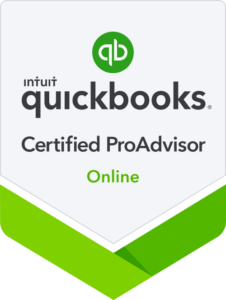
The novel coronavirus, Covid-19, continues to surge through the country and necessary economic shutdowns continue to keep millions of Americans out of work. The government’s response to this pandemic was to enact the coronavirus stimulus package, known as the CARES Act (Coronavirus Aid, Relief and Economic Security Act), which was signed into law on Friday March 27th, 2020. It totaled over two trillion dollars and encompasses a large variety of economic relief for Americans including stimulus payments to individuals, student loan changes, expanded unemployment coverage, altered retirement account rules, $350 billion for the Paycheck Protection Program (small business loan program), and more. The earmarked money of the CARES Act, intended to provide financial relief for small businesses was quickly depleted. In turn, on April 23rd, 2020, the House approved the $484 billion coronavirus relief bill which was then officially passed into law on April 24th, 2020. The additional funds breathe life into previously depleted relief programs under the CARES Act.
Paycheck Protection Program
The Paycheck Protection Program is a Small Business Administration loan that is intended to assist small businesses in continuing to employ their workforce during the Covid-19 crisis. According to The Wall Street Journal, the $350 billion dollars that initially funded the Paycheck Protection Program (created under the CARES Act, signed into law on March 27th, 2020) was exhausted as of April 16th, 2020. Due to the lack of capital available, it was forced to cease its distribution of funds. A large component of the $484 billion coronavirus relief bill is the allocation of $310 billion dollars in funding for small businesses. The Small Business Administration has stated that it plans resume accepting Paycheck Protection Program loan applications on Monday April 27th, 2020.
There are several nuances of the Paycheck Protection Program to keep in mind. As outlined by the United States Treasury, the Paycheck Protection Program is intended to be used for payroll related expenses.
Therefore, at least 75% of the loan money is required to be used for payroll. The remaining 25% can be used for rent or lease payments, mortgage interest, utilities, and/or debt accumulated since February 15th, 2020.
In order for the Paycheck Protection Program funds to be forgiven, they must be used within eight weeks from the time they were distributed by the lender.
Components of New Legislation
In addition to adding funds to the Paycheck Protection Program, there are several other important components to the $484 billion coronavirus relief bill. NBC News reports that $60 billion of the $310 billion Paycheck Protection Program funding is set aside for small businesses that do not have established banking relationships, including minority-owned and rural companies. This is intended assure businesses aren’t being excluded and to help expand the access to financial assistance.
Sixty billion dollars of the $484 billion coronavirus relief bill is set aside for the Small Business Administration’s (SBA) disaster relief fund. This is to provide disaster assistance in the form of SBA loans and/ or grants. The $484 billion coronavirus relief bill has also earmarked an additional $75 billion in grants to healthcare providers and hospitals dealing with extreme overcapacity as the influx of patients exceeds their capabilities and congests their systems. In efforts to move in the direction of safely reopening the economy, $25 billion dollars is being allotted to boost coronavirus testing. Forbes notes that the remaining $11 billion is reserved for states. The additional funds from the $484 billion coronavirus relief bill package bring the total to nearly $3 trillion dollars in federal financial funding and assistance as a result of the Coronavirus (Covid-19) outbreak.
For Further Information
If you follow your instincts and are clear with your needs you will likely find an accountant that is an excellent fit. While the task to connect with the right accountant may seem overwhelming, please keep in mind it will be worth it in the long run. The financial guidance that a good accountant will provide during one’s lifetime can result in significant financial gain. With the full range tax and accounting services of accounting services Allman & Allman APAC provide, we are certainly equipped with the expertise for which you may be in need. Seeking guidance from our firm will proved you the opportunity to work with individuals armed with broad and deep financial knowledge, able to provide advice on a wide range of issues. As a full-service public accounting firm, our professional services will surely help you succeed and thrive. Please feel free to reach out to Allman & Allman APAC via email at Genna@allmancpa.com or via phone at 760-773-1120 (Palm Desert) or 310-544-1120 (Rolling Hills Estates) to discuss your situation and find out how we can help you grow. We look forward to hearing from you.
References
- https://www.nytimes.com/2020/04/21/us/politics/congress-business-relief-ppp.html
- https://www.sbc.senate.gov/public/index.cfm/guide-to-the-cares-act
- https://www.heritage.org/budget-and-spending/commentary/how-big-the-covid-19-cares-act-relief-bill
- https://www.nbcnews.com/politics/congress/house-expected-pass-latest-coronavirus-aid-bill-thursday-n1190376
- https://www.wsj.com/articles/what-small-business-owners-need-to-know-about-the-new-stimulus-bill-11587576759
- https://www.sba.gov/funding-programs/loans/coronavirus-relief-options/paycheck-protection-program
- https://www.sba.gov/about-sba/sba-newsroom/press-releases-media-advisories/joint-statement-sba-administrator-jovita-carranza-and-treasury-secretary-steven-t-mnuchin-resumption
- https://www.nbcnews.com/politics/congress/house-expected-pass-latest-coronavirus-aid-bill-thursday-n1190376
- https://www.forbes.com/sites/sarahhansen/2020/04/24/trump-signs-484-billion-coronavirus-relief-bill/#75106f6c2228
- https://home.treasury.gov/system/files/136/PPP–Fact-Sheet.pdf?mod=article_inline





















